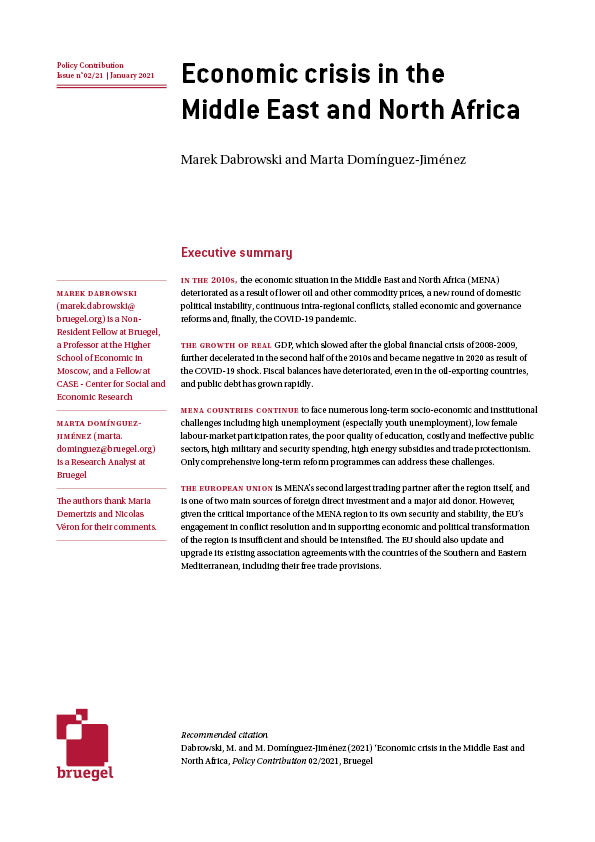Opinion

Central banks have been too slow in responding to higher inflation
Tackling inflation requires both monetary and fiscal policy tightening. It should be done quickly to avoid building up inflationary inertia and stagflation
Opinion

Tackling inflation requires both monetary and fiscal policy tightening. It should be done quickly to avoid building up inflationary inertia and stagflation
Blog Post


The European Union should grant candidate status to Georgia, Moldova and Ukraine, as part of a long-term stabilisation strategy.
Blog Post

The record-high debt levels in advanced economies increase the risk of sovereign insolvency. Governments should start fiscal consolidation soon in an environment of low nominal and real interest rates and post-COVID growth.
Opinion

Perhaps an analysis of the causes of the declining investment rate would bring us closer to explaining why real interest rates are so low.
Blog Post

Between 2007 and 2020, the balance sheets of the European Central Bank, the Bank of Japan, and the Fed have all increased about sevenfold. But inflation stayed low throughout the 2010s. This was possible due to decreasing money velocity and the money multiplier. However, a continuation of asset purchasing programs by central banks involves the risk of higher inflation and fiscal dominance.
Blog Post


Confronted with COVID-19, high-income Gulf countries have done better than most of their middle- and low-income neighbours; Jordan and Morocco are also positive exceptions.
Opinion

Even if a sovereign debt crisis is avoided, the public debt burden will negatively impact growth.
Policy Contribution

In the 2010s, the economic outlook of the countries in the Middle East and North Africa region deteriorated, with numerous long-term socio-economic and institutional challenges still unresolved. COVID-19 has compounded the problems. As the region's largest external trading partner, the European Union should do more to support economic and political transformation.
Blog Post


Central banks in emerging markets with weak currencies should not resort to unorthodox monetary tools such as quantitative easing as a response to the crisis triggered by COVID-19. Preferable alternatives include shifting public spending away from less pressing needs, moderately increasing public debt and falling back on official development assistance.
Blog Post



Over the past five years conflict has led to a deterioration of Russo-Ukrainian economic relations while ties with the EU have been deepened. This shift is evident in trade flows: the European Union has become Ukraine’s biggest trading partner, while China is poised to overtake Russia as its second. Natural gas imports from Russia, Ukraine’s prior Achilles heel, have been partially replaced by reverse deliveries from the EU and reduced as result of reform of the gas sector.